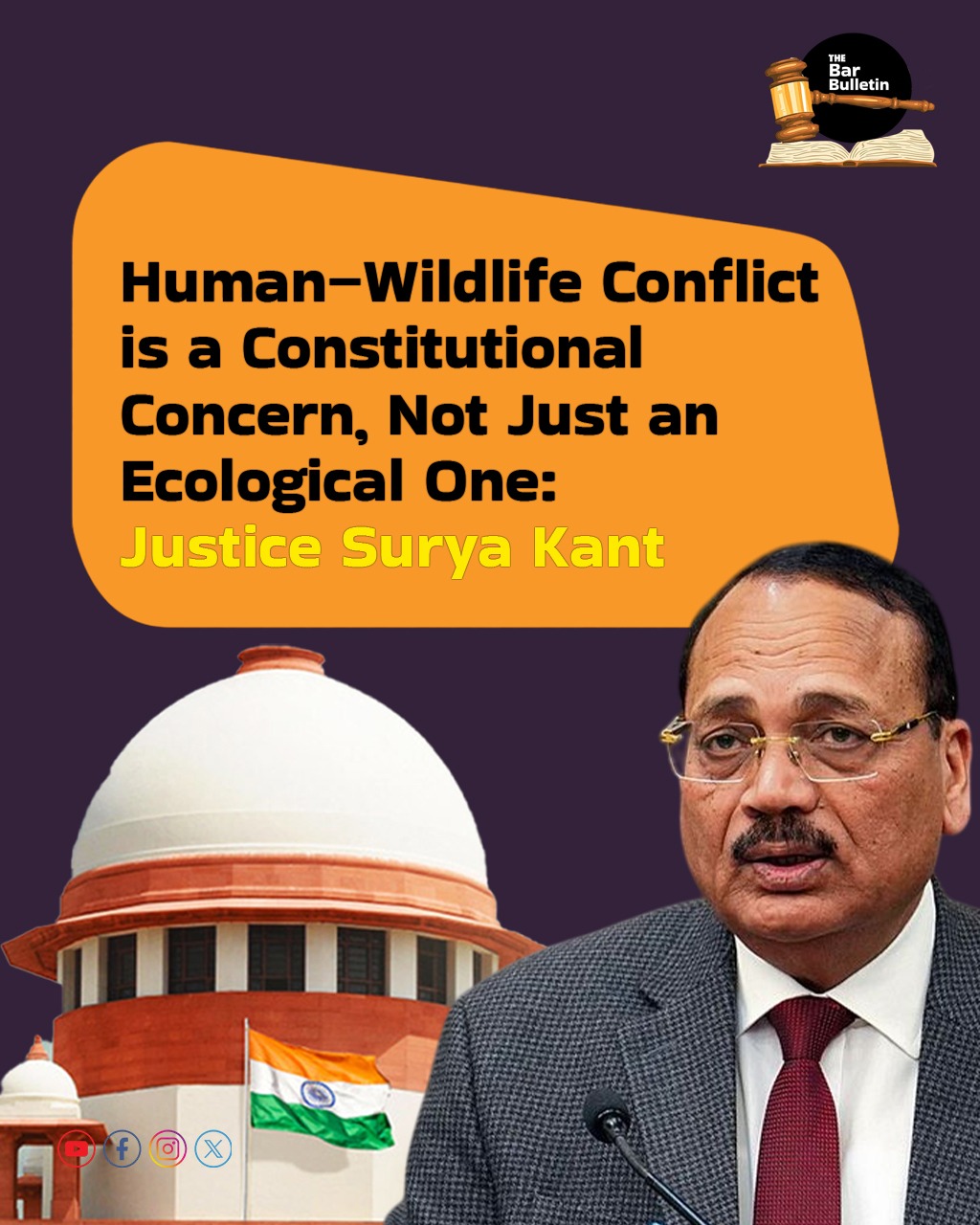The National Legal Services Authority (NALSA), in collaboration with the Kerala State Legal Services Authority (KeLSA), inaugurated its Regional Conference on Human–Wildlife Conflict & Co-Existence: Legal and Policy Perspectives at the Kerala Legislative Assembly Hall. The two-day conference, held on August 30–31, brought together Judges of the Supreme Court and various High Courts, policymakers, senior officials, and wildlife experts to deliberate on pressing legal and policy issues surrounding human–wildlife interactions.
Delivering the Inaugural Address, Justice Surya Kant, Judge, Supreme Court of India and Executive Chairman, NALSA, said:
“Justice cannot be permitted to operate selectively-neither in its substance nor in its application. Article 21, which enshrines the right to life and personal security, must be understood as extending also to the preservation of ecological conditions essential for the sustenance of that life.”
He noted that victims of human-wildlife conflict are often the poorest and most marginalised communities-farmers living on forest edges, migrant workers in makeshift shelters, and tribal groups whose lives remain intertwined with forests. “In our pursuit of expanding cities and industries, India’s farmers, labourers, and tribal communities are increasingly made to bear the ramifications of unchecked human greed,” he observed.
Justice Surya Kant also highlighted the launch of NALSA’s new Scheme on Access to Justice for Victims of Human-Wildlife Conflict, which provides for:
• Identification of conflict hotspots and rapid response mechanisms;
• Immediate relief and partial compensation to victims;
• Coordinated action among forest, health, agriculture, and revenue authorities;
• Special focus on tribals, women, children, persons with disabilities, and the elderly;
• Holistic rehabilitation including pensions, insurance entitlements, trauma care, and preventive legal action.
He emphasised that the scheme reflects the judiciary’s role as a “guardian of the Constitution,” ensuring that no individual is denied justice due to social, economic, or geographical barriers. “To allow these innocent individuals to languish unassisted would be to reduce them to mere collateral damage of human ambition. Can we, as a welfare state and as a compassionate society, permit such an injustice to prevail?” he asked.
Justice Surya Kant further remarked that human development and ecological preservation can co-exist:
“Human development and land use need not invariably come at the expense of wildlife. On a recent visit to Kenya, I observed how urbanisation was pursued not by displacing forests, but by integrating development in harmony with them.”
In addition to the wildlife scheme, NALSA also launched the SPRUHA Scheme 2025, aimed at providing pro-bono legal assistance even beyond the criteria of the Legal Services Authorities Act, extending dignity and justice to families who remain invisible victims of crime or incarceration.

